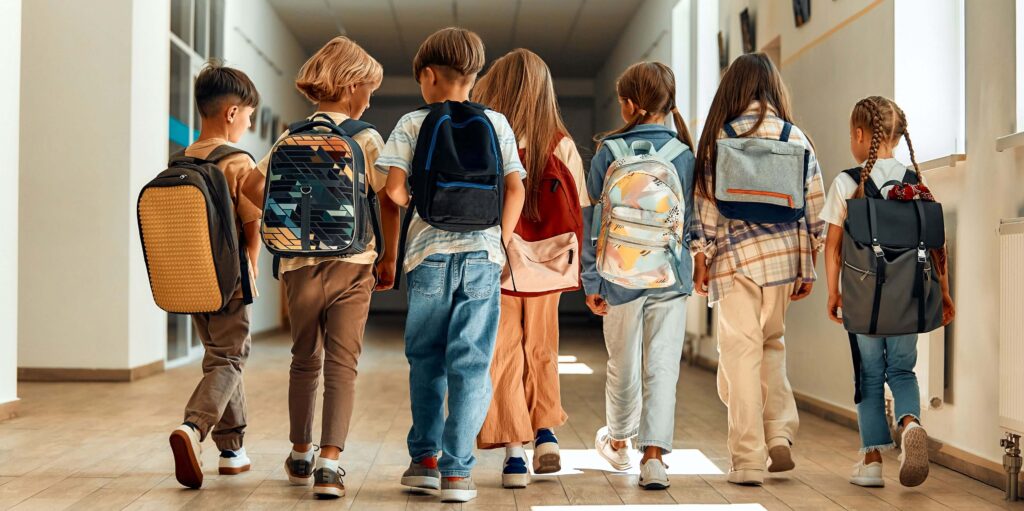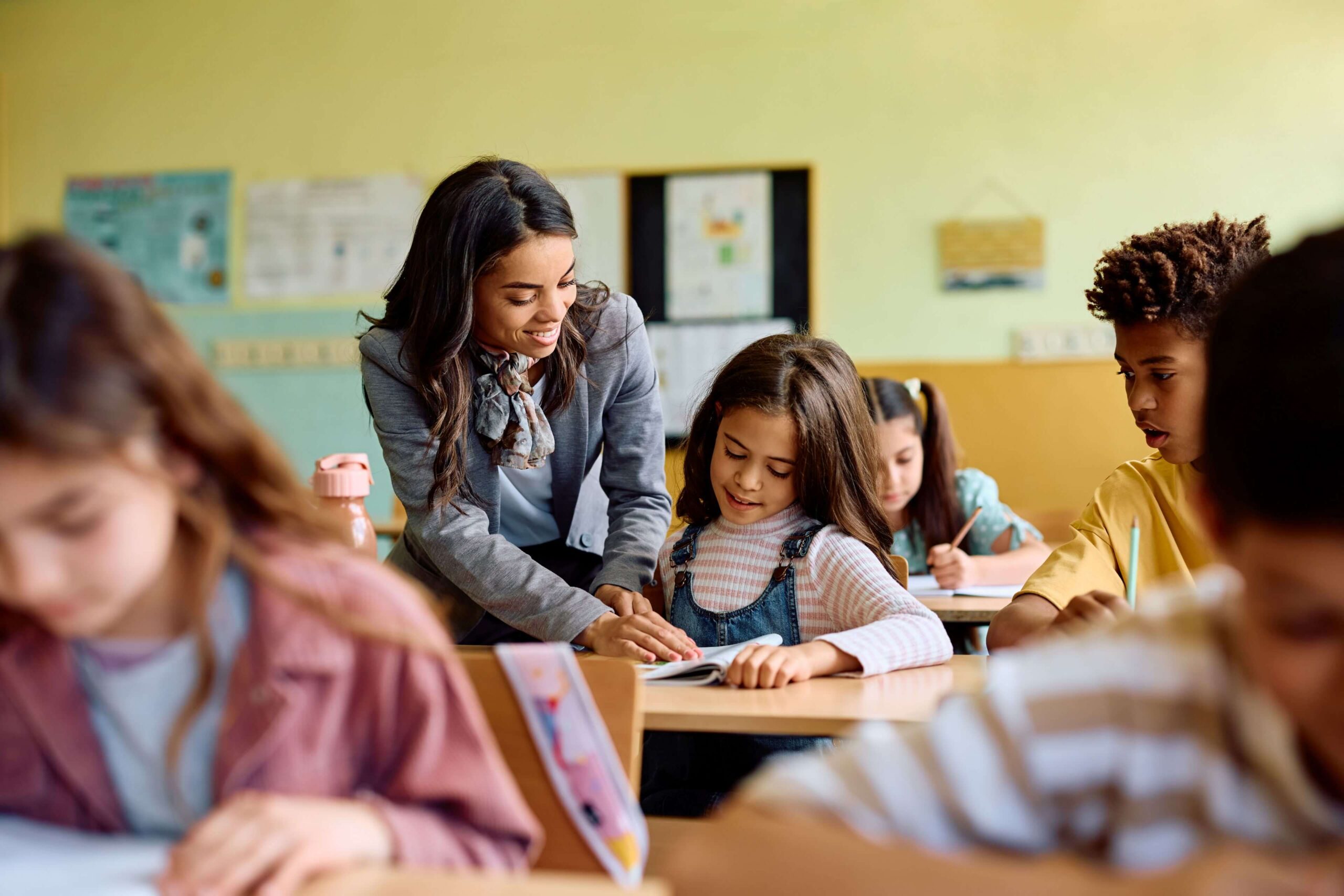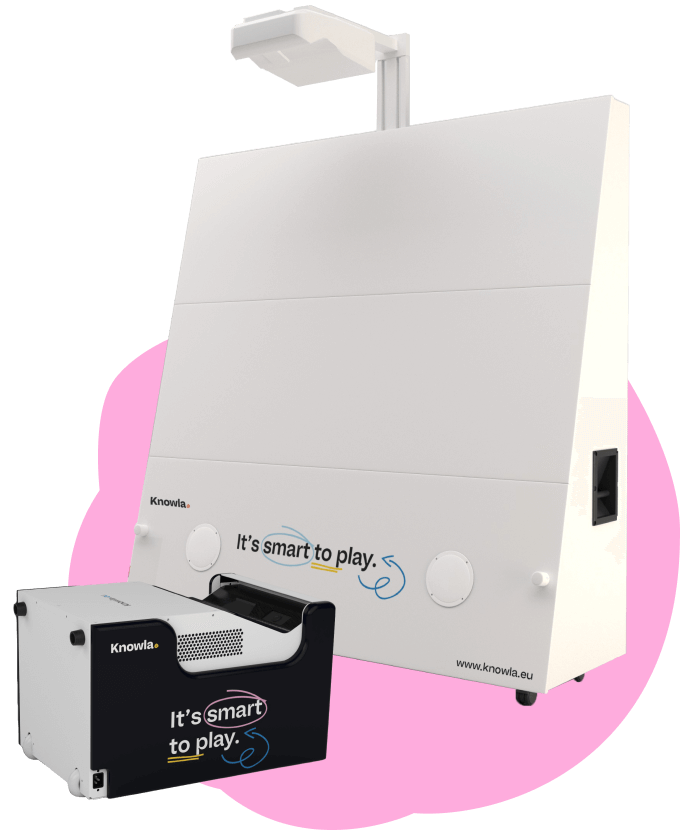When I try to go back to my classroom of years ago, what comes before my eyes are rows of desks with chairs and the teacher’s desk opposite. In the corners stood several communist-era bookcases, and on the pale walls were hung themed posters offered by some publishing house. On the windowsills were evergreen plants. Sometimes it was too dark, sometimes too light, once it was cool, once it was warm, and other times it was too stuffy.
At the time, I didn’t consider whether the space itself was relevant to my learning. Here are some tips for organizing the space in a way that will facilitate students’ learning.
Hall lighting
It seems obvious that the classroom should be well lit, both by natural light and that of the artificial kind. Research indicates that the number of windows matters, but this is not the whole truth. You should also consider their orientation and the risk of reflected sunlight, which can make it difficult to focus, not to mention visibility, for example: the board. When it comes to artificial lighting, it is important to consider its quantity and quality. Fluorescent lamps with ultraviolet additives had a good effect.
The studies I cited above show that lighting affects, among other things. on: more effective learning, occurrence of headaches, visual disturbances, activity in class, achievement of goals or development.
Classroom temperature and air quality
Researchers indicate that room temperature matters when it comes to focusing attention and remembering. In one study, when the temperature was reduced from 25oCto 20oC, test results improved. However, the researchers add that students feel more comfortable when this temperature can be controlled. It should also be added that intense solar heat exacerbates these conditions.
When there is a lot of carbon dioxide in the classroom, and the room itself has poor airflow, such as through lack of ventilation (opening doors or windows) or poor ventilation, students’ attention will begin to drop.
Classroom colors
The color scheme should be bright and intense. Classrooms with bright walls with illumination of a feature wall (such as one with a whiteboard) or tidy colored walls had a positive impact on learning. Also, the colorful elements in the bright classrooms themselves were related to the students’ progress. The saturated colors promoted focus in class and less involvement in unrelated activities. Schoolchildren preferred the color red, while children aged 3-5 were most attracted to cold colors. Cool colors also promote focus.
Furnishings and school space
The furniture should be comfortable and ergonomic. Their individualization perhaps promotes the student’s well-being or success.
In a properly prepared and laid out space, the students’ focus on interaction or cooperation will increase. An attractive interior reduces behavioral problems. Providing a unique space, i.e., ensuring that classrooms are different from one another, facilitates learning. Such a procedure will also enrich the students’ aesthetic sensibilities. However, you should be careful not to over-decorate, as this can distract students and make them absorb knowledge less well.
Interesting solutions are special rooms where students can spend breaks ( breakout spaces) and other spaces for children to learn freely ( learning zones). Their higher numbers in younger students and lower numbers in older students were associated with academic progress. Each room may differ in design, theme or purpose. In one of them, technology could be available for students’ independent or supervised experiments. Knowla Box would also fit in perfectly here. Its educational content will not only help you learn, but also entertain you in a break from studying.

Contact with nature
Contact with nature definitely has a positive impact on wellbeing, or human well-being. Students’ attention improved when they were surrounded by a green and natural environment.
Adaptation and individualization
The ability to customize the school space or place their objects and works in it makes students feel valued, valuable, increases their sense of worth and self-esteem. Such a function can be performed by various kinds of permanent exhibition spaces with artworks and more.
STEAMLab studios – a modern approach to space
If you’re interested in learning more about designing a school space, and STEAM labs in particular, be sure to check out the STEAMLabs projects prepared by STEAM Poland. You’ll find a lot of inspiration there, and you’ll learn how to design a more open space that can be adapted to the needs of your students and your chosen method of working.
Each such studio combines tradition with modernity and focuses on collaboration and interdisciplinarity within the STEAM method (combining science, technology, engineering, art and mathematics). There is also no shortage of space for modern technology, such as Knowla Box.
Summary
The research clearly points to elements of the space that have an impact on better academic performance and student well-being. However, the design and development of rooms alone is not enough. The teacher’s own work and that of the students is crucial. Without these factors, we won’t do much.
Sources:
- https://www.building.co.uk/cpd/cpd-21-2019-guidance-on-thermal-comfort-in-the-learning-environment/5102607.article
- https://www.sciencedirect.com/science/article/pii/S0360132315000700#bib38
- https://journals.sagepub.com/doi/abs/10.1177/0013916502250133?journalCode=eaba
- https://www.sciencedirect.com/science/article/abs/pii/S0272494407000941
- https://szkoladlainnowatora.ceo.org.pl/wp-content/uploads/2021/06/Przestrzeń-w-której-dobrze-się-uczy-A.-Pacewicz.pdf
- https://www.sciencedirect.com/science/article/abs/pii/S0360132312002582
- https://www.sciencedirect.com/science/article/pii/S2095263521000972#bib56
- https://www.sciencedirect.com/science/article/abs/pii/S0272494414000589
- https://www.sciencedirect.com/science/article/abs/pii/S0272494414000589


